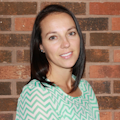Why this direct access hygienist is pressing pause
I’ve recently spent much of my time considering whether or not to continue providing dental care at a local nursing facility. If you recall from my last article, I faced a situation that potentially could have resulted in a major liability concern. If you haven’t read that article, I’ll give you a quick recap.
I treated a patient in her room one day, who needed to get up and ready for our appointment. She was able to get out of bed and to the restroom, but needed some assistance in getting off of the toilet, getting dressed, and back to her bed. Her call light was on, she was calling for assistance for several minutes with no staff coming to her aid. This patient knows that I am waiting for her to ready herself for our appointment. She begins to call to me for help. I feel terrible standing in the hall listening to her call for help and not seeing anyone coming to her, so I help her complete those tasks. Keep in mind, I am not trained to assist these residents in any of these tasks. I don’t believe my good intentions would have been sufficient explanation if this resident had fallen while I was helping her.
While there had been other situations that made me uncomfortable while treating residents at the facility, none left me feeling as uncomfortable as this one. I was uncomfortable because I—out of compassion and concern—put myself in the position to unintentionally cause or allow this patient to be harmed if she had fallen while I was helping her. I was uncomfortable because this resident’s need for help went unanswered. I was uncomfortable for other reasons as well.
Please understand that I am aware that facilities are often understaffed. The residents do not know that I should not be helping them with these types of activities, and many of the staff do not know that I am not trained for those things. Many of the staff do not know who I am, what my career is, and what I am doing there. The residents and staff alike see me in the hall with scrubs on and may assume that I am capable.
This makes me uncomfortable because it highlights struggles that I did not anticipate. I found that I was not fully prepared to address many issues that arose during my time within the facility, and I was not able to immediately make a change. Each struggle or issue that has come up has given me an opportunity to look at this situation in a new light. Many of these struggles are issues that I believe can be addressed, and I do have solutions in mind.
This is one of those moments where I need to step away, regroup, and review my process. There are easy things to update, such as paperwork, and sorting through the equipment that I have discovered that I do not need. More difficult changes need to be made as well. For example, I have expectations that need to be lowered and expectations that need to be raised.
My expectation of how smooth this was supposed to go, how easy each day was going to be—this expectation has already been lowered. I do still find myself with disappointments about how the day goes, usually about things that are out of my control and that I won’t be able to change. My expectations of how the staff and I interact were not met, and this is a difficult one for me because it is only my fault that this did not happen differently. I did not present myself well to the staff. My intentions, goals, and needs in order for this process to work in this facility were not introduced but to a few select staff members. Why should I expect a different outcome?
You get the idea. I have many changes to make in order to make this the success that I know it can be., This care can be life changing to a resident, and I need to find a way to provide it to them in a feasible manner. I have been so blessed to have been able to bring care to such a vulnerable and forgotten population. Many of these patients not only enjoy having a clean mouth, but they have let me know how much they have enjoyed my company as well. I have learned so much from them too as we chat about their families, their youth, their memories.
For the moment I have withdrawn my care from this facility. I am saddened to know that I will not be there to care for them, but I do need to step away and reconsider how this should be working. On a more exciting point, I do have another hygienist that is interested in serving this population. I am beyond excited to be able to work with another her on this project. Another set of eyes, another mind full of ideas and solutions, another set of hands to provide care. Cheer us on as we move forward, we are determined to make a difference! Thank you to those of you who have reached out to me with questions, suggestions, and encouragement. I am so grateful for those emails and to those that send them. Please, contact me at [email protected], and thank you again for reading.
About the Author

Amy Ericks, BSDH, RDH
After 6 years of full-time clinical practice, Amy Ericks, BSDH, RDH, decided to pursue a journey to bring dental hygiene services to a long-term care facility. This often-neglected population has been on her mind for some time, and she is humbled to be able to be making a difference in their care. Here she walks us through her journey as she navigates this exciting new career path, stumbling blocks and all. She is also currently the president-elect of the South Dakota Dental Hygiene Association and is hopeful and encouraged about the impact she may have within her state.

